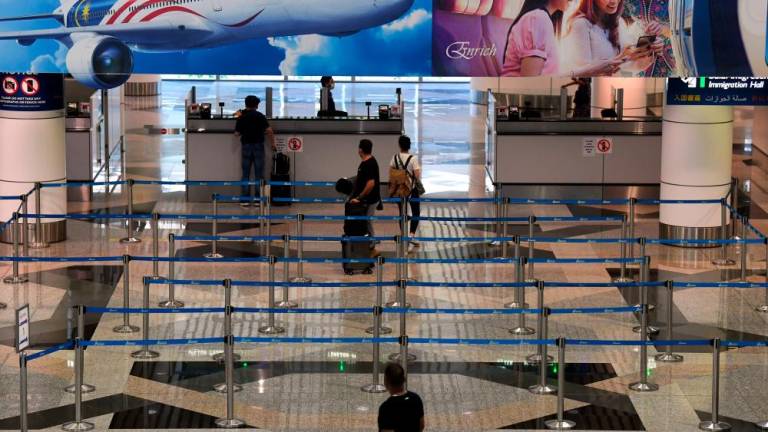LONDON: Britain's economic recovery will be weaker than expected with Europe suffering from a second coronavirus wave and the country's post-Brexit trade deal with the EU unresolved, the International Monetary Fund (IMF) said on Thursday.
The UK economy will contract by 10.4% this year and grow by 5.7% in 2021, the IMF forecast.
Just two weeks ago, the IMF predicted a 9.8% contraction this year and growth of 5.9% next.
"The outlook is for a muted recovery with risks weighted to the downside," the Fund said in a statement on Thursday.
"The sharp summer rebound in activity faces strong headwinds from a second wave of Covid-19 infections, Brexit-related uncertainty, rising unemployment, and stress on corporate balance sheets."
Speaking with reporters online, IMF head Kristalina Georgieva said Britain's financial rescue package triggered by the virus and carried out by its government and central bank "is one of the best examples of coordinated action" seen globally.
"My main message today is that continued policy support is essential to address the pandemic and to sustain and invigorate a recovery."
Britain can afford to ramp up its already massive spending push to counter the effects of the coronavirus pandemic on the economy, Georgieva said.
The British government should increase public investment and bolster its welfare support for people who lose their jobs because of the crisis, she said. It should also continue supporting companies and protecting workers until the economic hit eases.
Sunak welcomed the IMF report, which he said endorsed his economic policies and his warnings that there would need to be action in future to reduce borrowing.
"Let me be clear on what the Fund is saying today. It's right to support the economy in the short term, but over time, – and in line with other major economies – we must get our public finances back on a sustainable path," he said
Georgieva said the Bank of England should continue to keep monetary policy accommodative because of the "significant risk" that would come in weaker than its 2% target.
"This can be done by scaling up government bond purchases. Other tools like negative rates can be brought in after further understanding is developed on when they would be most useful in the UK context," she said.
The UK government last week improved its new jobs-support scheme after businesses hit by regional coronavirus lockdowns claimed it did not go far enough.
Despite the change, the scheme remains much watered down compared with a government jobs furlough package that ends on Oct 31.
The British government on Thursday vowed to persist with localised coronavirus restrictions, despite fresh data showing surging numbers of cases and deaths across the country, and new national lockdowns in its European neighbours.
Britain is the hardest hit country in Europe, with more than 45,000 fatalities among those testing positive. – AFP, Reuters













